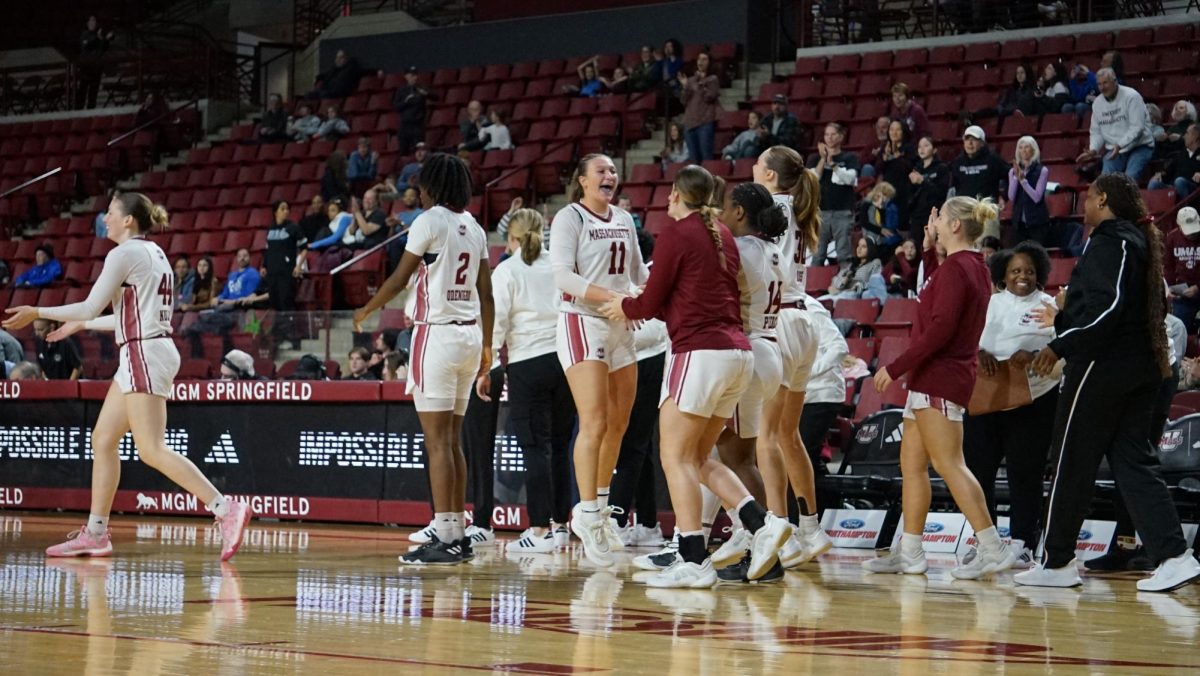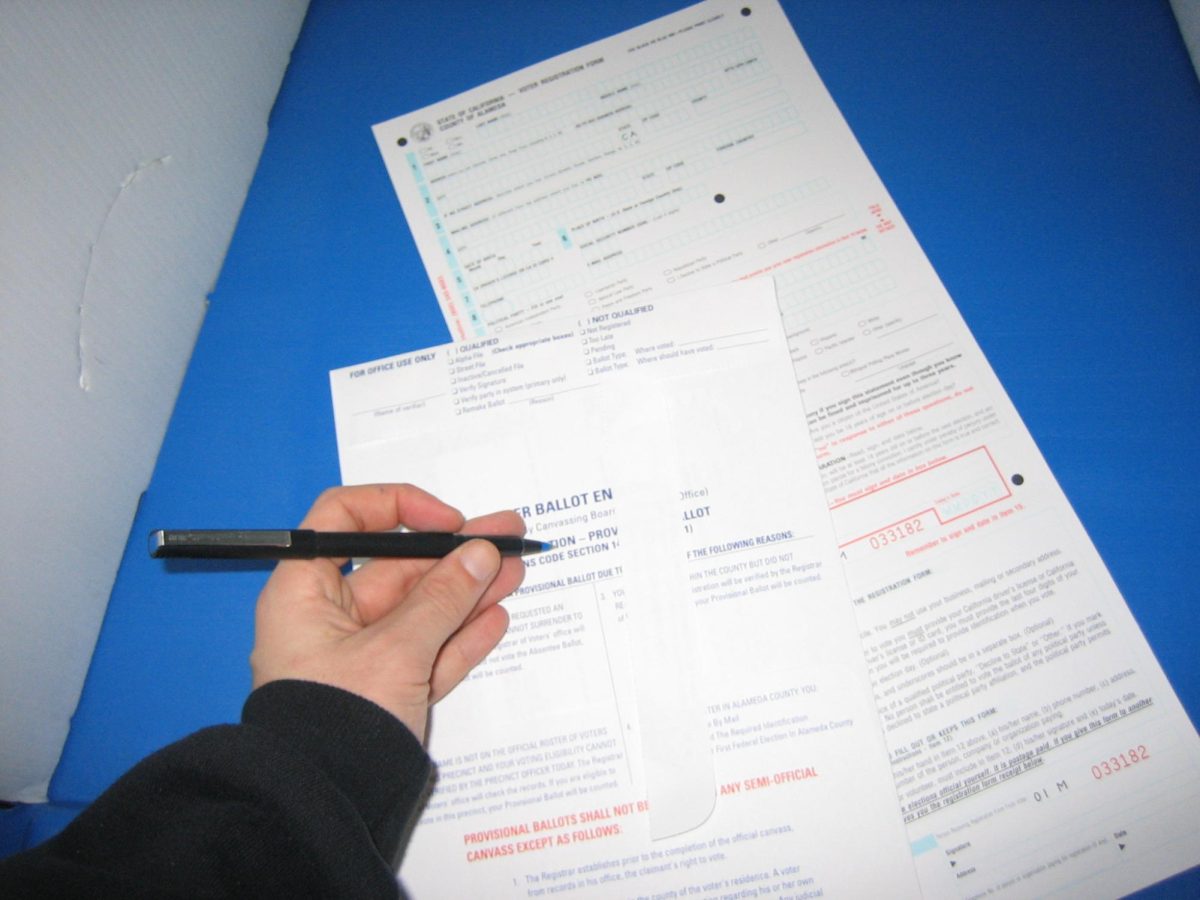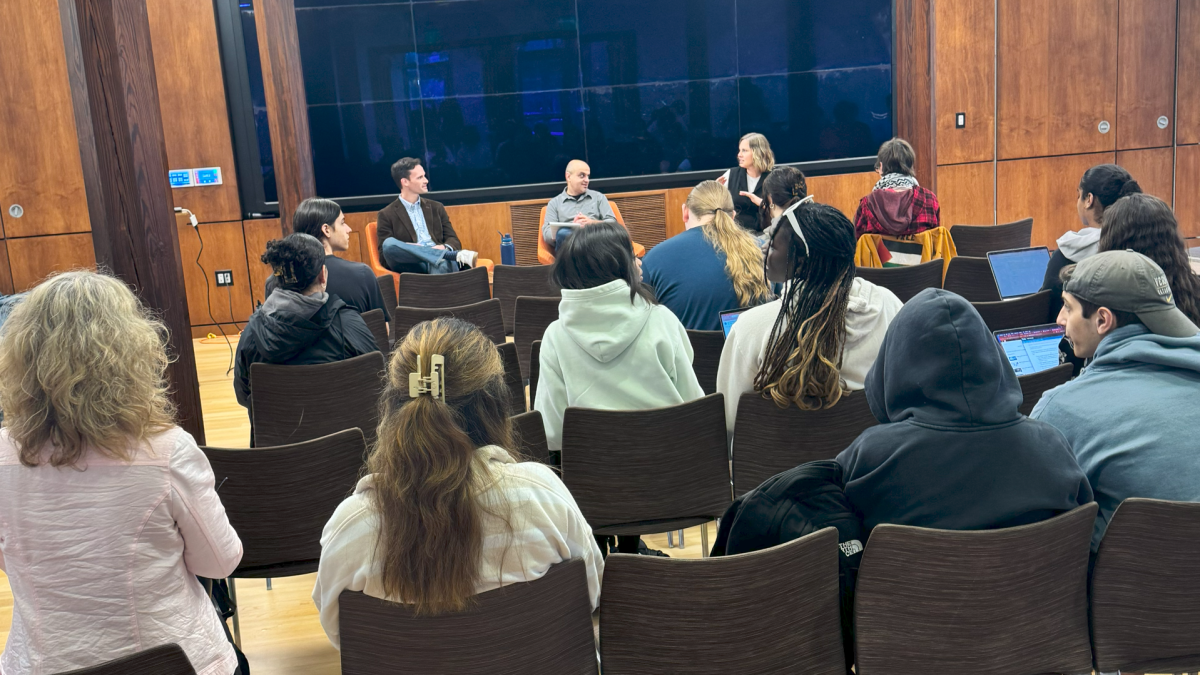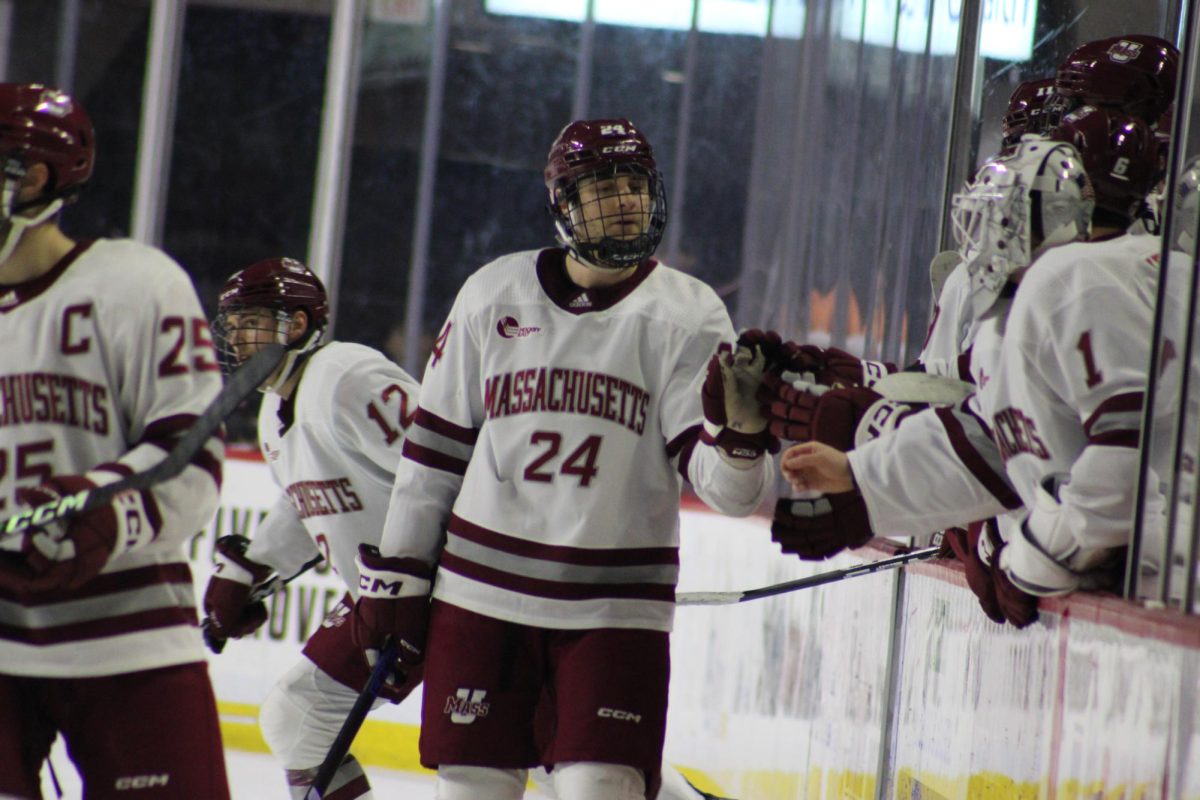Student Led Sustainability from Paige Gildner on Vimeo.
Article and video by Paige Gildner for Steve Fox’s Multimedia Journalism class.
Sustainability. The Green Movement. What exactly are these concepts? Climate change. Industrial agriculture. Renewable energy. What do these words mean and why do they matter? Does the effort to live more sustainably begin and end with replacing incandescent light bulbs with fluorescent ones and purchasing a Hybrid car instead of a gas guzzling SUV? Although these are important beginning steps, the simple answer is they are not enough. A sustainable lifestyle is not a brief trend or a lapsing fad. In the broadest of terms, a sustainable lifestyle is a commitment and shift in focus to becoming more aware of the impacts of our lives on the Earth and its natural resources.
The University of Massachusetts was recently chosen as a winner of the 2010 “Leading by Example” award for excellence in sustainability efforts in higher education. It is a huge school, full of positive initiatives and the desire to become a more sustainable institution. This attention to sustainability at the administrative level has trickled into the consciousness of the students who go here and has been the jump off point for many student led initiatives.
On October 22, 2010 something was different about the lawn in front of Franklin Dining Commons on campus. Piles of compost, mulch, cardboard, and gardening utensils were scattered around the area and a slew of volunteers worked on a sheet mulching process, the first of many steps in creating the Permaculture Garden that would eventually call the lawn its home. An idea conceived by students in Dr. John Gerber’s Sustainable Agriculture class in the Spring of 2009, the ¼ acre plot of land was being converted into an ecological, low maintenance garden that would grow fruits and vegetables, without the assistance of fossil fuels, to provide to Franklin.
The sheet-mulching of the Permaculture Garden was a well-advertised, public sight that drew in volunteers from not only UMASS but also the surrounding areas and attracted media attention ranging from The Daily Hampshire Gazette to a broadcast on News 22 Springfield. A Facebook page and a WordPress Blog worked to drum up interest and stimulate curiosity in the project and with the help of more than a hundred volunteers, the foundation for the garden was laid in a few short weeks.
Those that volunteered in the garden believed in the cause. The Permaculture Garden is not just a mound of dirt which will someday produce a few heads of lettuce and some tomatoes, it is a visible effort on behalf of UMASS to become a more sustainable community; a community which places emphasis on healthy living, an increase in agriculture production, and a human connection to the land and materials around us. As an added bonus, the Permaculture Garden is an almost entirely student-run initiative.
The presence of the Permaculture Garden serves as a glimpse into the numerous approaches of UMASS to become a more environmentally aware community. Courses and campus organizations exist to raise awareness about sustainability among the university population and to and ease students into the idea of living in ways that are better for themselves and the world around them.
Josh Stoffel is currently the hired Sustainability Coordinator on campus who describes his job as a “very holistic 25,000 square foot view of campus sustainability”. Stoffel is currently working on a variety of projects, including the installation of a 1-megawatt solar array on stilts one mile north of campus. In addition to the projects he heads, he also oversees 18 student interns with positions related to sustainability. Stoffel and the interns collectively form what is known on campus as the Sustainability Initiative.
Paige Lewis, a junior double majoring in Communications and BDIC Sustainability Studies is a communications intern under Stoffel. Along with two other interns, she is a part of a PR team that has developed a Sustainability Newsletter, which highlights past and ongoing sustainable events on the UMASS campus. The Sustainability Initiative under Stoffel is introduced in the newsletter as a group of students who aim to “educate students, faculty and staff while developing progressive solutions to reduce negative environmental impacts in ways that are economically beneficial.”
As a senior at UMASS three years ago, Stoffel started the Eco-Rep program, which has grown exponentially in the past few years and is now managed by Nell Finnigan, a junior Sustainable Agriculture major. The Eco-Rep program, which vows to “Make Sustainability Sexy” is open to UMASS students but specifically freshmen, and is a program that relies on the academic and theoretical teaching of main issues of sustainability to raise awareness among students living in the dorms. These issues include water preservation, recycling and waste awareness, energy conservation, and being aware of consumptive habits, among others. The hope is these students can then translate their understanding of these issues into positive initiatives, which range from one-on-one conversations with peers to the planning and overseeing of bigger events.
Finnigan recalls an a “Bike to the Beat Concert” that was put on a few years ago in Van Meter, by the Central Eco-Reps. The event, powered mainly by bicycle generators, allowed students living in the dorm to engage in learning about energy conservation while participating in an event that was environmentally friendly yet enjoyable. “That’s kind of what this program is looking to do; educate but not too heavily so students don’t want to engage,” Finnigan said. “It’s almost trying to walk the line between an educational event and a party.”
Along a similar path, Amber Hewett is the current Secretary of Sustainability for the Student Government Association. The main project she is working on is to develop a Bike Share program on campus, which will supply UMASS with a fleet of bicycles available for public use by the students. Hewett, who was first interested in coming to UMASS because of its sustainable efforts and good grade on the College Sustainability Report Card, has been a part of on-campus sustainability initiatives since her Freshman year. As the Secretary of Sustainability, she has found that sometimes students will be working on similar projects and not even know it. Her ongoing side project in her position is to create a “central hub” online where students who are interested or involved in sustainable initiatives on campus can go to research and learn more about initiatives currently taking place. Hewett hopes to bring initiatives together in order to enhance their efforts and have less overlap among them. “If we bring these groups together so many good things can come out of them,” she said.
A number of classes at UMASS have developed to provide the knowledge of what is taught by the fundamentals of sustainability. Dr. John Gerber is a professor in the Plants, Soils and Insects Department at UMASS and teaches a number of courses related to sustainability. His biggest class, Sustainable Living, fulfills a general education requirement and is available to students of all majors. In this class, students interact with guest speakers from the Western Massachusetts area who come to the class to engage in discussions about alternative ways of living which stray from the more normal industrial ways of thinking. Gerber describes current human life as one that functions under an industrial growth society “that is collapsing around us” and is a firm believer we must shift our methods of living towards more life-sustaining methods. “The environmental feedback we’re getting, the economic collapse, are all indicators that something’s not working and we’re waking up,” he said.
Understanding and recognizing the importance of living more sustainably is a crucial first step if positive change is to be made and if the shift to a more environmentally responsible life style is to be accomplished. Students, faculty, and administrators on this campus who are dedicated to this mission serve as teachers and motivators about living a life which is healthier, rewarding, more promising, and generally makes more sense. Visible reminders like compost bins and the Permaculture Garden are icons for an ongoing and endless initiative to preserve our world, and our eyes must always be open.






